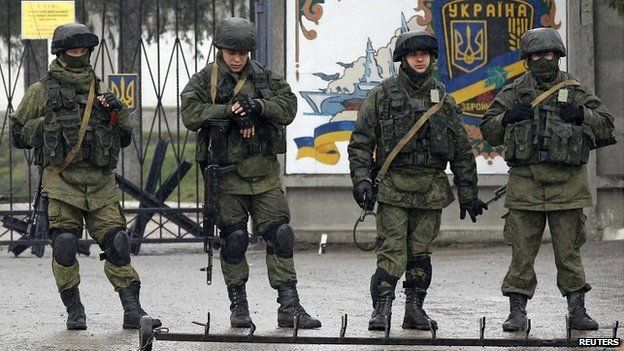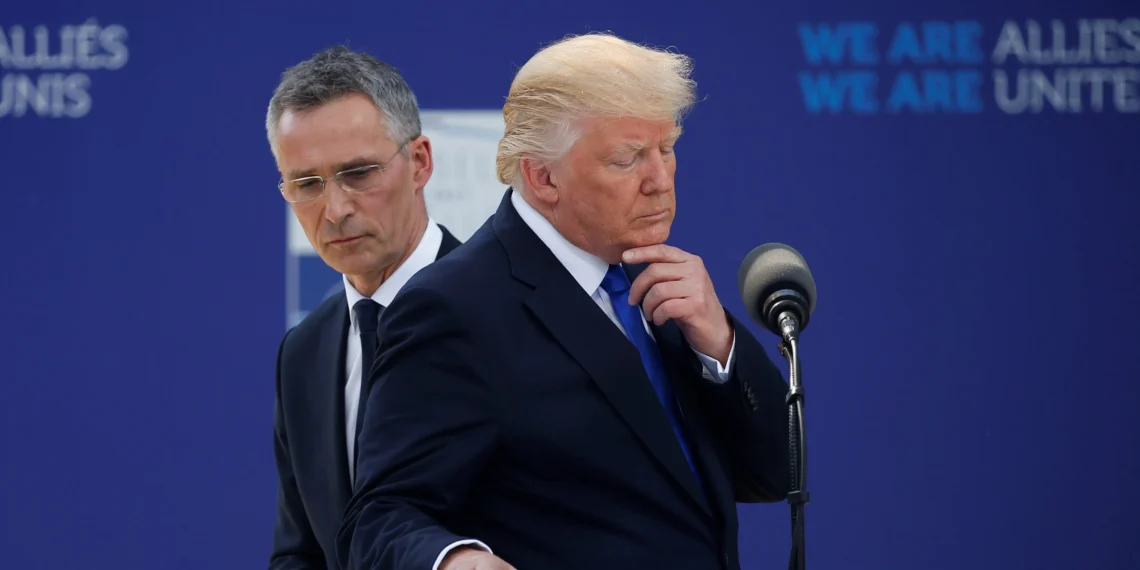In a New Hampshire rally on Friday night, Former President Donald Trump criticized NATO countries, asserting that they spent “billions and billions” on defense only after he had threatened not to protect Europe in the event of an attack.
Trump recently expressed frustration with European nations heavily relying on Washington for defense spending, a sentiment that crystallized during his meetings with NATO leaders while he was in office.
According to Trump, he realized that the United States was essentially “footing the bill” for their defense. During discussions on this matter, a European leader directly posed the question to Trump, asking whether the U.S. commitment to protect them was contingent on their financial contributions.
When he raised that concern, a European leader asked him, “Does that mean if we’re not paid up, you’re not going to protect us?” Trump said.
“I said that’s exactly what it means,” he said. “And the following day, billions and billions of dollars came pouring in.”
A recent POLITICO report disclosed that in 2020, Former President Donald Trump informed European Commission President Ursula von der Leyen that the United States would not come to Europe’s defense in case of an attack.
Read More: Trump’s Victory Echoes: Americans Yearn for His Return
Trump’s campaign had not previously commented on this meeting, and it remains uncertain if his remarks at the New Hampshire rally referred specifically to this conversation with von der Leyen.
Notably, at the NATO summit in Wales in 2014, alliance members committed to allocating 2 percent of their Gross National Product (GNP) to their defense by 2024, a goal that only a fraction of the members are on track to meet.
Throughout his tenure, Trump consistently criticized NATO members for not matching U.S. defense spending levels, despite the considerable difference in the Gross National Product between the United States and other NATO nations.

Following the release of Trump’s earlier remarks, the campaign of President Joe Biden attacked the businessman.
“The idea that he would abandon our allies if he doesn’t get his way underscores what we already know to be true about Donald Trump: The only person he cares about is himself,” Biden campaign spokesperson Ammar Moussa said in a statement.
French European Commissioner Thierry Breton, who recounted the von der Leyen meeting, called his threat “a big wake-up call.”
“Now more than ever, we know that we are on our own, of course. We are a member of NATO, almost all of us, of course we have allies, but we have no other options but to increase drastically this pillar in order to be ready [for] whatever happens,” he said at an event in the European Parliament in Brussels earlier this month.
Despite Russia’s military actions in Ukraine leading to a global increase in military spending, recent open data from the Alliance indicates that only 11 out of the 30 NATO countries are anticipated to meet or surpass the 2% GDP defense spending target in 2023.
Join us on Telegram: https://t.me/tfiglobal
The released figures reveal that a significant 63% of NATO members are expected to fall short of the 2% mark.
Among the countries set to meet or exceed the target are Estonia (2.73%), Finland (2.45%), Greece (3.01%), Hungary (2.43%), Latvia (2.27%), Lithuania (2.54%), Poland (3.90%), Romania (2.44%), Slovak Republic (2.03%), the UK (2.07%), and the US (3.49%).
This situation highlights a broader trend where the majority of NATO nations are struggling to achieve the 2% GDP defense spending commitment established in 2006 to enhance the Alliance’s preparedness.
NATO Secretary-General Jens Stoltenberg consistently keeps on calling upon member nations to accelerate their efforts in increasing defense spending, emphasizing the urgency as new figures reveal that fewer than a quarter of the alliance’s countries are meeting the 2% GDP target.
Stoltenberg underscores the increased global risks highlighted by the Russia-Ukraine conflict, emphasizing the need for NATO allies to establish and achieve more ambitious military spending objectives. The annual report from the NATO secretary-general indicates that, in 2022, only seven out of the 30 alliance countries met the existing goal of dedicating 2% of their GDP to defense.
This number represents a decrease from the previous year and underlines the imperative for NATO members to bolster their commitment to military expenditures in response to evolving geopolitical challenges.
According to Stoltenberg, NATO had projected that two more countries would reach the goal, but because of faster-than-expected economic growth, their spending as a percentage of GDP was lower than envisaged.
Ever since Russian forces entered the eastern Ukrainian region of Donbas in 2014 and seized Crimea, NATO nations have been gradually raising their overall defense budgets. However, Stoltenberg claimed that the Russian military operation of the previous year demonstrated the necessity of increasing spending.

“There’s no doubt that we need to do more and we need to do it faster,” he told reporters at NATO headquarters in Brussels.
Read More: Trump Plans to Dissolve NATO Alliance in his Second Term
“The pace now, when it comes to increases in defence spending, is not high enough,” he said. “My message to allies is that we welcome what they’ve done but they need to speed up, they need to deliver more in a more dangerous world.”
With President Biden potentially facing an uphill battle for re-election and Donald Trump’s hawkish rhetoric on NATO spending resonating with voters, European anxieties are boiling over. Fearing a Trump presidency that might abandon America’s traditional role as NATO’s protector, European nations are scrambling to appease the former president by significantly boosting their defense budgets. Billions are pouring into NATO coffers, driven by the chilling prospect of American security guarantees turning conditional on reaching the coveted 2% of GDP spending target.
This sudden surge in investment reflects a stark reality: Europe’s comfort zone under US leadership is under threat, and the continent is scrambling to hedge its bets in a potentially turbulent future. While Trump’s pre-election warnings may be mere political maneuvering, they have undoubtedly struck a chord in Europe, exposing a vulnerability that European nations are now desperately trying to patch. Whether this newfound commitment to defense spending translates into genuine capability and strategic autonomy remains to be seen, but one thing is clear: the landscape of European security is undergoing a dramatic shift, propelled by the specter of an America less willing to shoulder the sole burden of defense.








